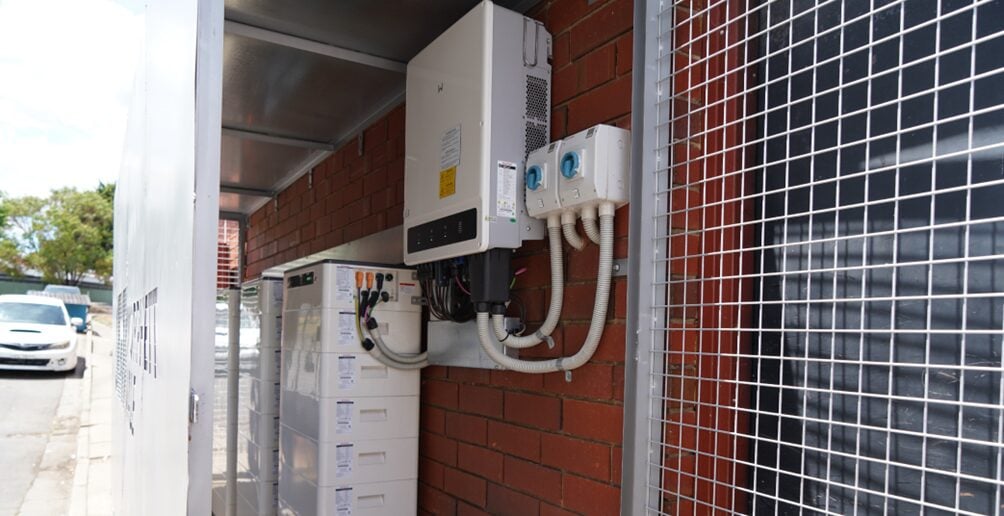
An Australian supermarket has taken a major step towards energy independence with the installation of a GoodWe energy storage system, completed by local solar specialist Solaring. The project not only reduces the store’s reliance on the grid but also ensures uninterrupted operations, safeguarding perishable goods even during power outages. Since the installation, IGA Morphett Vale has already seen a 50% reduction in its monthly power costs.
At the core of the installation is the GoodWe GW29.9k-ET hybrid inverter, paired with 102.4kWh of the company’s Lynx F G2 batteries, comprised of four 25.6kWH stacks in parallel.
The ET Series hybrid inverter allows for up to 200% oversizing, enabling the business to maximise energy production and optimise self-consumption. With 60kW of solar panels paired with the 30kW inverter, IGA Morphett Vale can generate significantly more power than the inverter’s nominal rating, resulting in substantial cost savings and greater energy autonomy.
The installation is already delivering benefits, Solaring’s Rajan Kumar Katkam commenting: “The system is saving approximately 68 megawatt-hours of power annually—equivalent to preventing 20,000 kilograms of coal from being burned. We are delighted to help businesses become more sustainable and contribute to Australia’s net-zero mission. This installation not only reduces energy costs but also makes a real difference to the environment and the local community.”
Dean Williamson, Country Manager at GoodWe Australia, emphasised the value of this innovative solution, adding: “This project showcases how businesses can harness the power of solar and storage to drive long-term sustainability and financial benefits. The ET Series hybrid inverter’s oversizing capability, combined with the Lynx F G2 battery, ensures businesses can maximise self-consumption and reduce their reliance on the grid. By integrating high-performance solar and storage, IGA Morphett Vale is future-proofing its operations and reinforcing its commitment to sustainability.”
Following the success of this installation, the store is already planning to add more battery storage and integrate a second ET30 hybrid inverter. By storing excess solar energy instead of feeding it back to the grid for minimal compensation, the store is saving 45 cents per kilowatt-hour, a significant increase compared to the 5 cents per kWh they would otherwise receive.

